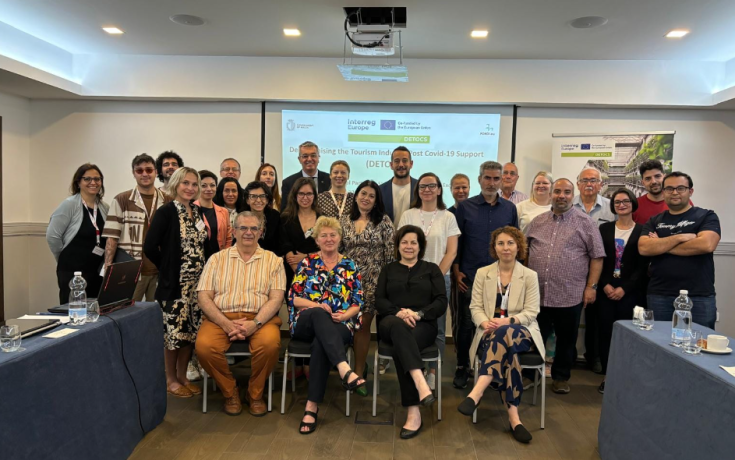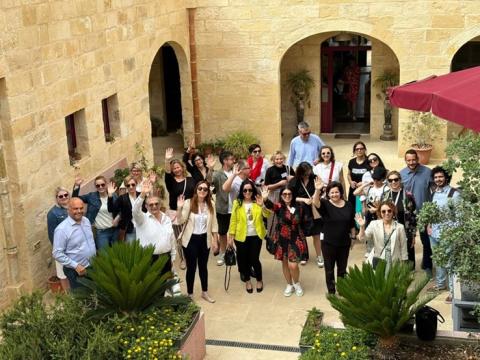Third Interregional Exchange of Experience Event in Malta
On 15th - 16th May 2024, the Interreg Europe DETOCS project held its third Interregional Exchange of Experience Event and Steering Group Meeting in Malta. Representatives from the 8 participating partner regions gathered to share the findings of partners' regional Eisenhower Matrix analyses and explore various solutions aimed at the decarbonisation of the tourism sector in their respective regions.
During the meeting, several common strengths and opportunities were identified among the partners, including:
- Political Commitment and Strategies: Burgas (Bulgaria), Molise (Italy), Malta and Ptuj (Slovenia) have established; for example, measurable targets for decarbonisation. These targets provide clear indicators that guide efforts towards sustainability.
- Sustainable Tourism: The growing global trend towards sustainable and responsible tourism presents an opportunity to attract eco-conscious tourists. This supports the decarbonisation initiatives in Burgas (Bulgaria), Crete (Greece), Molise (Italy) and Ptuj (Slovenia).
- Renewable Energy Sources: Crete, Malta, Molise, Burgas and Ptuj benefit from diverse renewable energy sources like solar power. South Ostrobothnia (Finland) and Central Danube (Hungary) are commended for their technological advancements in sustainable energy usage.
- All regions have access to funding opportunities aimed at improving energy efficiency in tourist establishments.
However, several common weaknesses were also highlighted, which the project aims to address:
- Many hotels and tourist establishments are still using inefficient energy systems
- There is limited use of energy performance certificates and energy audits in the tourism sector.
- Historic buildings used for tourism, such as museums and theatres, face technical institutional challenges in renovation.
- Insufficient enforcement of energy efficiency regulations hinders policy measures towards decarbonisation.
- Tourism operators often show insufficient interest in exploiting available funding schemes due to long and bureaucratic administrative procedures for applying and receiving financial grants.
- There is a lack of training for staff to appropriately operate installed energy efficient systems and practices.
- Insufficient digital expertise affects the efficient operation of technical building management systems and digital controls, as well as marketing virtual tourism programmes.
The afternoon session included study visits to small, medium and large tourist establishments that have implemented effective energy solutions in their operations. One notable visit was to a family-run wellness guesthouse that has embraced the Energy, Water and Food Nexus. This guesthouse uses sustainable materials for building, collects rain water, reuses waste water for irrigation, grows its own vegetables and herbs, and uses solar heating throughout the premises.


